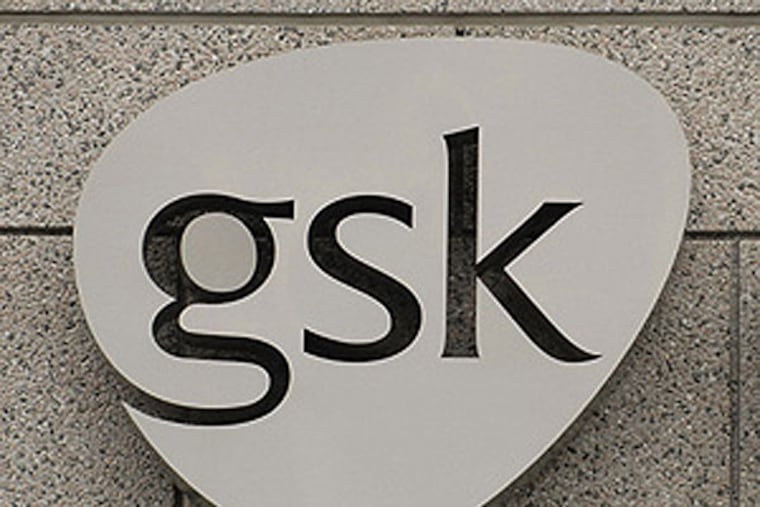Glaxo moving Phila. R&D jobs to Maryland
Drugmaker GlaxoSmithKline said Thursday that it would establish a new hub for vaccine research and development in the Washington suburb of Rockville, Md., a move that will directly affect about 150 employees at the company's King of Prussia facility.

Drugmaker GlaxoSmithKline said Thursday that it would establish a new hub for vaccine research and development in the Washington suburb of Rockville, Md., a move that will directly affect about 150 employees at the company's King of Prussia facility.
Establishing the Maryland hub, GSK said in a statement, "will consolidate vaccines R&D activities currently conducted at other GSK sites including in Philadelphia and Cambridge, Mass., into one centralized location. Key late-stage development programs, as well as vaccine discovery and new platform technology development, will be led from Rockville."
Based in London, GSK has operations at the Navy Yard and in Montgomery County, though local employees and facilities have been in flux for several years.
In December, GSK said it was reorganizing its U.S. pharmaceutical operations, with some jobs moving from North Carolina to the Philadelphia area and some local jobs being cut.
The approximately 150 local employees involved in vaccine research were operating from a leased building in the Renaissance Corporate Center. GSK said in March 2013 that it would vacate that facility within a couple of years, with employees moving to other buildings in Montgomery County.
On Thursday, GSK said it expected vaccine operations to begin in Rockville as early as September.
Asked how many local vaccine workers would lose their jobs, company spokeswoman Melinda Stubbee said in an e-mail:
"In the coming weeks we'll have discussions with employees about the possibility of relocating to Rockville. In addition, we're still in the process of working through organizational design and business needs; this will help us understand the impact this consolidation will have on employees. The final number of employees to be located at the new center in Rockville will be dependent on these and future decisions."
During a flurry of activity to accelerate the testing and deployment of an Ebola vaccine last year, about 300 GSK employees in the Philadelphia area were involved in that effort in multiple roles.
The Ebola episode, in some ways, symbolizes a piece of why GSK is setting up the vaccine research center in Rockville, using one of three buildings it acquired in its 2012 acquisition of Human Genome Sciences. National and global organizations involved in that process are nearby, even though it means navigating Beltway traffic.
"In Rockville, we have a state-of-the-art facility that meets our demands for the size and technological capability required for vaccines R&D," Stubbee said. "It's also in close proximity to Washington, D.C., and our key U.S. stakeholders."
Stubbee cited the U.S. Department of Health and Human Services, which includes the Food and Drug Administration, the National Institutes of Health, and the Biomedical Advance Research and Development Authority. The University of Maryland is along the Beltway, while Johns Hopkins University and the Center for Medicare and Medicaid Services are farther north on I-95 in Baltimore.
GSK's other vaccine R&D sites will be in Rixensart, Belgium, and Siena, Italy. GSK acquired the Siena site from Novartis in March, when the two companies closed a three-part multibillion-dollar deal.
In that deal, GSK gave up its existing (but not future) cancer products, Novartis gave up all but one of its vaccines, and GSK got the majority role in a joint venture to sell consumer products worldwide.
215-854-4506 @phillypharma